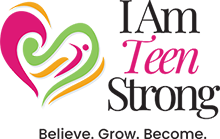In celebration of PRIDE last month it seemed perfect timing to talk about being good being out. Yes, coming out to your family and friends about your sexuality-orientation or identity…or both! Some of you took the brave step to let others know who you are and who you love. Congratulations! The decision to come out can be stressful, scary and overwhelming…it can also be relieving, liberating and empowering! It’s powerful to read about professional football players, swimmers, other athletes and actors and people in the news who come out and express freely their orientation and/or identity. These public leaders help create acceptance and normalization for members of the LGBTQ community. You did the same, you are out, now what?
How to be good being out, how to feel comfortable in your own skin. While being out is much more accepted in society, we still have a ways to go. Won’t it be great when being gay has the same weight as being straight? Love is love, right?! Until then it may be helpful to think about a few things to help you on your way. In past articles we have discussed boundaries, communication, confidence and resiliency…now it is time to put some of those important skills to use. Building on skills you already have and working on creating new skills for the future is always a good idea.
Let’s take a closer look at skills to help readjust to being out, being you and being empowered whoever and wherever you are in your journey:
Boundaries: What is right for you? Behaviors, language, relationships, treatment…from your pronouns to your name, to who you want to be with and when. How you are spoken to and how you treat others. Think about what is respectful, reasonable and comfortable to you. We are all different in defining what our healthy boundaries are, knowing yourself and what works for you is the first step in establishing those boundaries for healthy and happy living.
Communication: As you understand yourself and your boundaries, what works and doesn’t work for you and how you want to be treated, it comes time to tell others, to communicate those boundaries to others. We have to know ourselves before we expect others to know us, right? “I Statements” are my forever fav technique to simply, clearly and effectively communicate what I am thinking, what is bothering me, how I feel and why and what I wish could be a solution. Remember, we don’t always get what we want but communicating and expressing yourself is a powerful step in achieving our goals. However you communicate, remember communication and self expression are large factors to happiness.
Confidence: Having successful experiences, doing things well, accomplishing goals, meeting a challenge…these bring us confidence. We don’t always have the confidence we’d like in all areas of our life but often we have at least a couple of things we are good at and can be proud of. Think about the challenges you have had recently. What solutions did you find for them? Were you able to help yourself? DId you assist someone else? Who can you look to for building confidence, help you with problem solving and teach you new skills? Confidence comes from the smallest successes to the biggest challenges we overcome. It is a learned skill. While you are working on your confidence, be the person you want to be, that is a great way to increase your confidence.
Resiliency: The frosting on cake! Going through a difficult challenge and coming through stronger, more knowledgeable, more empathetic…being an even better version of yourself. Facing a challenge, taking a risk, surviving and hopefully thriving is what resiliency is all about. Having a positive attitude can do wonders for moving your mood and attitude in the right direction. Find a support system, whether a family member, friend, teacher or other trusted adult…get yourself a cheerleader to reinforce your successes and cheer you on….look at all you have achieved!
Life happens and challenges arise. Keep moving forward and you will be amazed at just how successful you actually are and can be. Have a question about being good being out? Not sure what to do? Find a trusted adult and talk about it. Call or text the TeenCrisisLine 602.248.8336 (TEEN) or seek out the support of a professional mental health provider.
***********************************************************************************************************
Rachel Rubenstein, LCSW is a private practice mental health provider and educator located in Arizona who is passionate about assisting our youth to thrive by learning skills and gaining insights!

